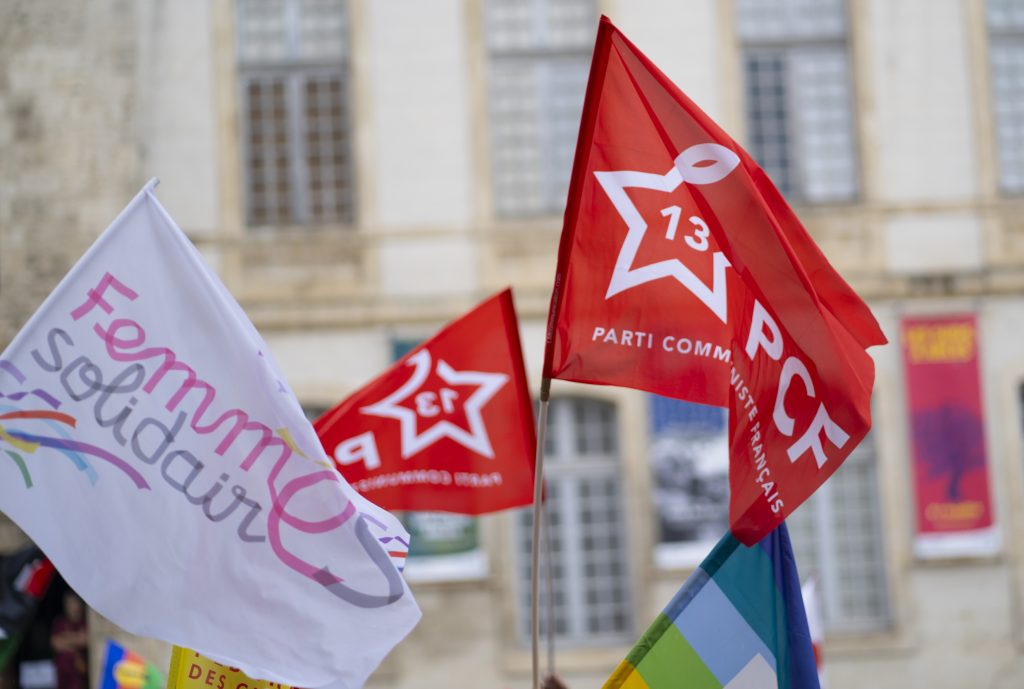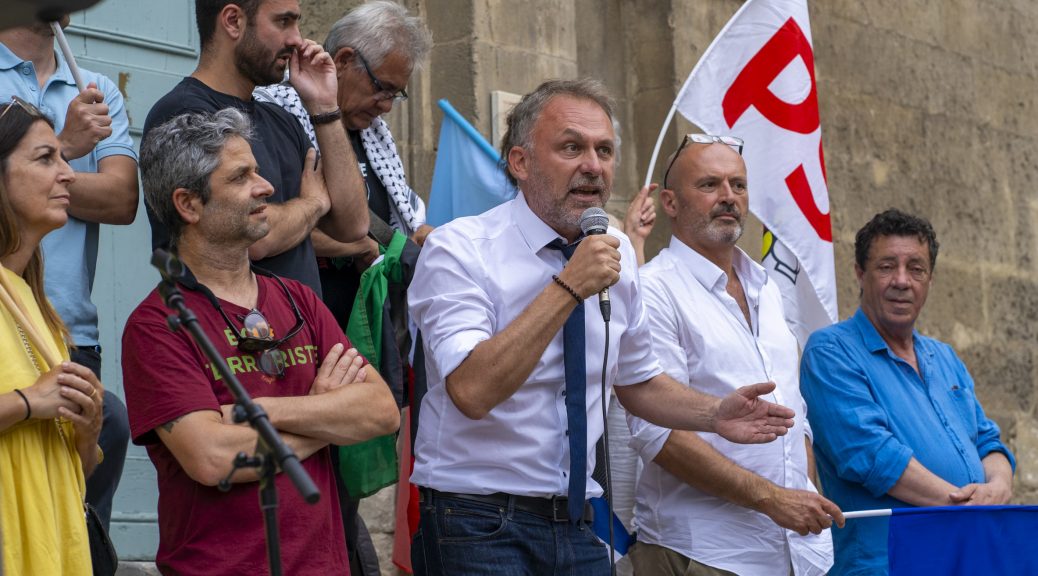Text by Hannah Levitan
Photos by Surya Vaidy
In Arles, a small city of Roman monuments and narrow streets, the politics had long been reliably left, and for decades, the town’s mayors were from the Socialist or Communist party.
But as the ancient town’s economy shifted from a working-class community, deeply rooted in its Provençal traditions, to one reliant on tourism, the town’s politics too, have evolved.

On June 30, France witnessed the largest voter turnout for a new National Assembly in decades, with 65.8% of the population casting their ballots in the first round of voting.
In the run-off elections on July 7, the turnout was 63%. The New Popular Front, a new leftist coalition, won a plurality of seats. But in Arles, the extreme right-wing candidate, Emmanuel Taché de la Pagerie, was reelected with 56% of the vote.
In the European Union elections, held between June 6 and June 9, the the National Rally, a far-right party known for its anti-immigration and nationalist policies, emerged with historic success. Within two days, the country’s four main left parties united to block the party.
“The threat of the rise of the far-right has never been so strong,” Emilie Pautus, a bookseller in Arles, said. “The mobilization in response has been stronger than usual to counter the threat.”
In the weeks leading up to the first round of elections, Nicolas Koukas, a representative of the French Communist Party and candidate for the New Popular Front, was making his rounds in the Bouches-du-Rhône Department’s 16th constituency.
Campaigning through its diverse neighborhoods, open-air markets and rural farmhouses, Koukas was eager to secure votes as much for himself as against the National Rally.
“A few years ago, we looked at the United States with Trump coming to power and we were very worried. [We thought] it was far away and not our situation,” Koukas said. “But now we realize, unfortunately, that the far right is here.”
The fear, expressed by many who are not National Rally supporters, was that the party would threaten civil liberties and fuel discrimination against minorities.
Kobaa Driss, manager of Moroccan restaurant Menara, said he witnessed a man rip off a woman’s hijab in a supermarket.
“The man said, ‘What are you doing here? Go back home!’ and he started insulting the woman,” Driss said.
Already, Pautus said the town feels more divided. “I don’t see how we could regain unity, at least not right now.”
One Arles resident, Emmanuelle Laurent, the director of communications for the city of Arles, believes that the political difficulty in France, since the beginning of the 2000s, is that all elections have become about blocking the National Rally. “Voters have become used to voting not necessarily for a party they truly support.”
But it was in this region, the Bouches-du-Rhône, where the first candidates from that party’s predecessor, the National Front, were elected.
“I live in a village where the [National Rally] deputy was elected with 60% of the vote in the last two successive elections,” Laurent said. “I think this can be explained by the fact that people are very attached to their traditions.”
In the first round of snap elections, 40% of the vote in Arles went to National Rally candidate Taché de la Pagerie, despite the New Popular Front’s action throughout the district.
“I think we’ve become aware of the huge difference between the urban population of downtown Arles, which is mostly left-leaning, and the more rural population around it,” Pautus said. But in the first round of voting on June 30, the difference was less pronounced, she said.
Preparing for the second round of parliament elections on July 7, the town’s walls were covered in campaign flyers, most in support of the New Popular Front.
While the leftist coalition won nationally, the National Rally still emerged strong in Arles.
The election left many people wondering how the government could function so evenly divided in three political camps. “I think it generally means that we have reached a society where people don’t really want to live together anymore, and I think we all feel that,” Pautus said.
Feature photo: New Popular Front candidate Nicolas Koukas speaks during a rally against the rise of the far right in France on June 22, 2024. Photo by Surya Vaidy. Interpretation by Monica Ronco and Claire Fanchini.

